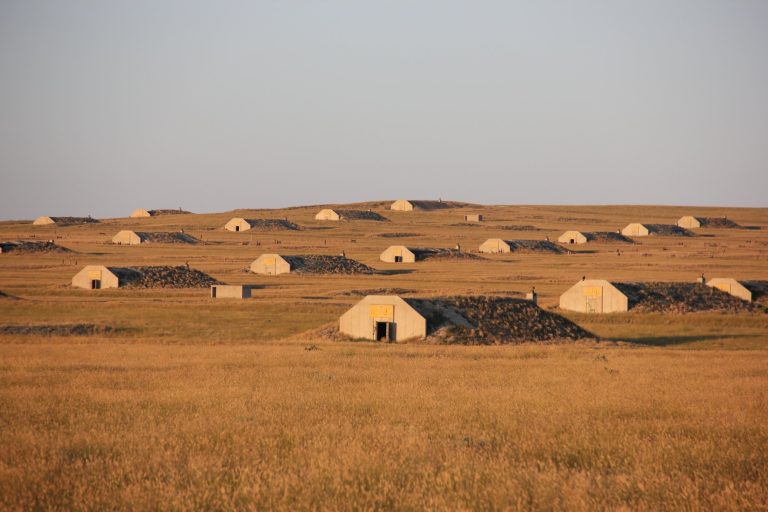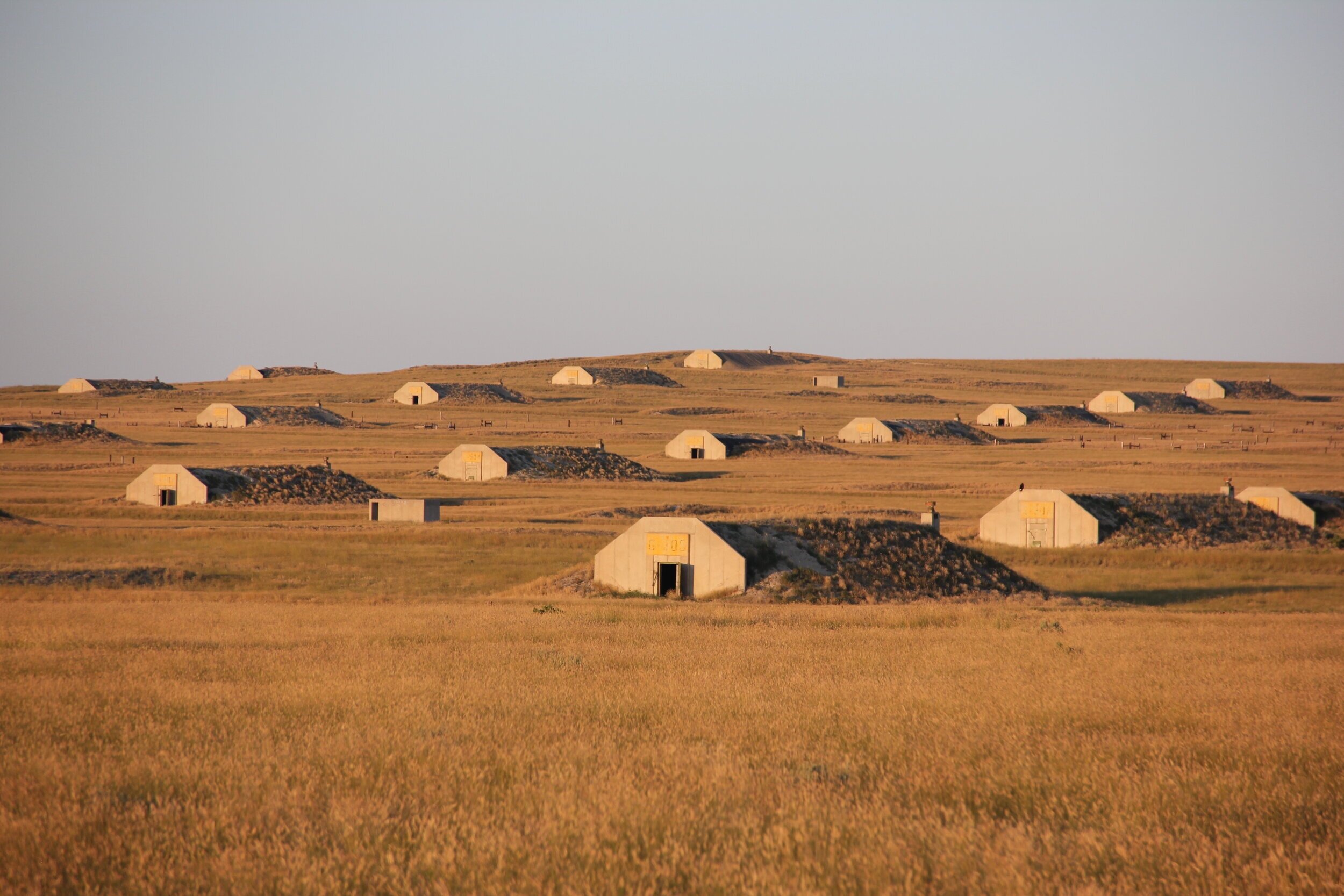PIERRE, SD – Medical experts in South Dakota and across the country are concerned that reluctance among some people to get vaccinated against COVID-19 may prolong the pandemic, delay a return to normal life and possibly lead to more deaths.
Health officials say that the U.S. and individual states are in a race to reach “herd immunity,” a level at which enough people are immune to the coronavirus to curtail its spread and reduce hospitalizations and deaths from the virus.
South Dakota has been a national leader in providing coronavirus vaccines to older residents and others at high risk of complications from COVID-19.

But as the vaccine rollout expanded to Phase 2, making anyone 16 and older eligible for vaccination, the demand for shots has waned and concerns have risen that herd immunity may be unobtainable.
“It’s definitely concerning, and it’s truly a race against time,” said Dr. Shankar Kurra, vice president of medical affairs at Monument Health in Rapid City. “If we don’t get to that threshold of herd immunity, we could end up losing the race and having a new surge or wave of cases and unfortunately more hospitalizations and deaths.”
National surveys and reports from medical experts in South Dakota reveal that vaccine hesitancy is more common among young people, rural and low-income residents, those with lower education levels and among some religious and political groups. Misinformation about the safety of COVID-19 vaccines is seen as a common reason people are deciding not to get vaccinated.
Failure to get enough people vaccinated could allow the current COVID-19 pandemic to linger and raises the likelihood that coronavirus variants, which appear to spread faster and more easily, would take hold and spread freely even among those who were vaccinated against the original version of the virus, Kurra said.
South Dakota medical experts will be watching closely over the next month or so to see if vaccination rates remain stable now that eligibility has expanded to the largest population group so far.
Meagan Jensen, 25, is an agriculture teacher at Sturgis High School who has followed the progress of the vaccination effort in the news and has so far decided not to get vaccinated.
Jensen, a graduate of South Dakota State University who now lives in Rapid City, said she is well aware of the risks of serious illness from COVID-19 and has gone “back and forth” on whether to get vaccinated.
Jensen said she has friends her age who contracted COVID-19 and had “extreme” symptoms that included hair loss and the inability to taste or smell. Jensen said she wonders if she will need proof of vaccination to travel abroad to destinations such as New Zealand. She also worries that failing to get vaccinated could put her students at risk.
But Jensen said she has concerns that any vaccine, including the COVID-19 vaccine, could reduce fertility in women, either in the short or long term.
“I’m around FFA [Future Farmers of America] students all the time, so I’ve probably been exposed multiple times and I haven’t gotten it,” Jensen said. “If I haven’t gotten COVID already, maybe I won’t.”
Dr. David Basel, vice president for clinical quality at Avera Health in Sioux Falls, said failure to reach herd immunity would make it more likely that coronavirus variants will become the dominant strain of the virus in South Dakota and beyond.
If a large pocket of people in South Dakota or elsewhere does not obtain immunity to the coronavirus, it creates a crucible of sorts for coronavirus variants to take hold and spread, thereby raising the potential that variants could infect those who received immunizations or had COVID-19 before.
“From my standpoint, I feel like we’re in the race of the vaccine versus the variants,” Basel said.
Randy Dudek of Rapid City said he received the vaccination against COVID-19 but only because he was required to as an electrician who sometimes works at Ellsworth Air Force Base in Box Elder. “I’m not a test bunny for anybody,” he said.
Dudek, 32, said he also has concerns about whether the vaccine-approval process was rushed. He gets his information about the vaccines from CDC bulletins sent to his work email and from news outlets, but not social media, which he said is rife with misinformation.
Dudek, a married father of two, said his wife has not gotten vaccinated because she works from home.
“I know it [COVID-19] affects everybody differently, but I would consider myself and my wife to be pretty healthy,” he said. Basel said the medical community is trying to tamp down misinformation including ‘myths’ that the vaccines can cause COVID-19, that the shots reduce fertility, that the vaccines were rapidly authorized by the U.S. Food & Drug Administration without proper testing and trials, and that side effects can be severe.
Jessica McDonald, 26, said that all of the residents at the South Dakota nursing home where she works as a certified nursing assistant have gotten vaccinated for COVID-19, but that she is not planning to get a shot.
McDonald, who lives in Piedmont, said she feels that the COVID-19 vaccines were rushed through the authorization process by the FDA, and she is not convinced the vaccinations are completely safe.
“I have this one to worry about, so I can’t take any chances,” she said, pointing to her 4-year-old daughter as they ate lunch in Rapid City. “It was rushed, like an emergency thing.”
Sanford Health recently announced that it had opened vaccinations up to people who walked into vaccination sites and who did not have an appointment. But the effort to promote vaccinations suffered a setback this week when the CDC temporarily halted use of the Johnson & Johnson vaccine due to rare but potentially deadline incidents of blood clots in vaccine recipients.
The undecideds remain the target of campaigns to increase vaccination rates.
Basel said it is critical for those who are hesitant to get vaccinated to make an educated, sensible risk analysis when it comes to the COVID-19 vaccination.
“A lot of people say, ‘I’m worried about a potential long-term risk of vaccinations and I’d rather avoid those if possible,’” Basel said. “But you’re really making a choice between a very low, very theoretical risk of a side effect or adverse effect from the vaccination versus a known, considerably higher, clear and present danger of adverse effects of COVID.”
As of April 13, 2021, the state had about 306,650 people who had received one dose of any vaccine, a rate of about 51.0%, and about 217,950 people who were fully vaccinated, a rate of about 36.5%. In the U.S. as a whole on that date, about 122.3 million people had received one dose, a rate of 36.8%, and roughly 75.3 million people were fully vaccinated, a rate of 22.7%.
National surveys showed that several population and socioeconomic groups were more likely to express hesitancy to get vaccinated, including younger adults, women, non-Hispanic Blacks, adults living in rural areas, adults with lower educational attainment and lower incomes, and those without health insurance. All vaccinations in South Dakota are free for patients.
A poll in late March by the nonpartisan Kaiser Family Foundation showed that among all population groups, Republicans and white evangelical Christians were most likely to say they won’t get vaccinated.
In South Dakota, the state’s mostly rural population may face geographic challenges in getting vaccinated easily, said Tim Heath, immunization program manager for the South Dakota Department of Health
Heath said the state is preparing surveys to drill in on who is hesitant to get vaccinated in South Dakota and why. Those results could drive further educational campaigns and target resistant populations better, he said.
“We need to get the word out that the vaccine is free, it works, so come in and get it,” Heath said.











